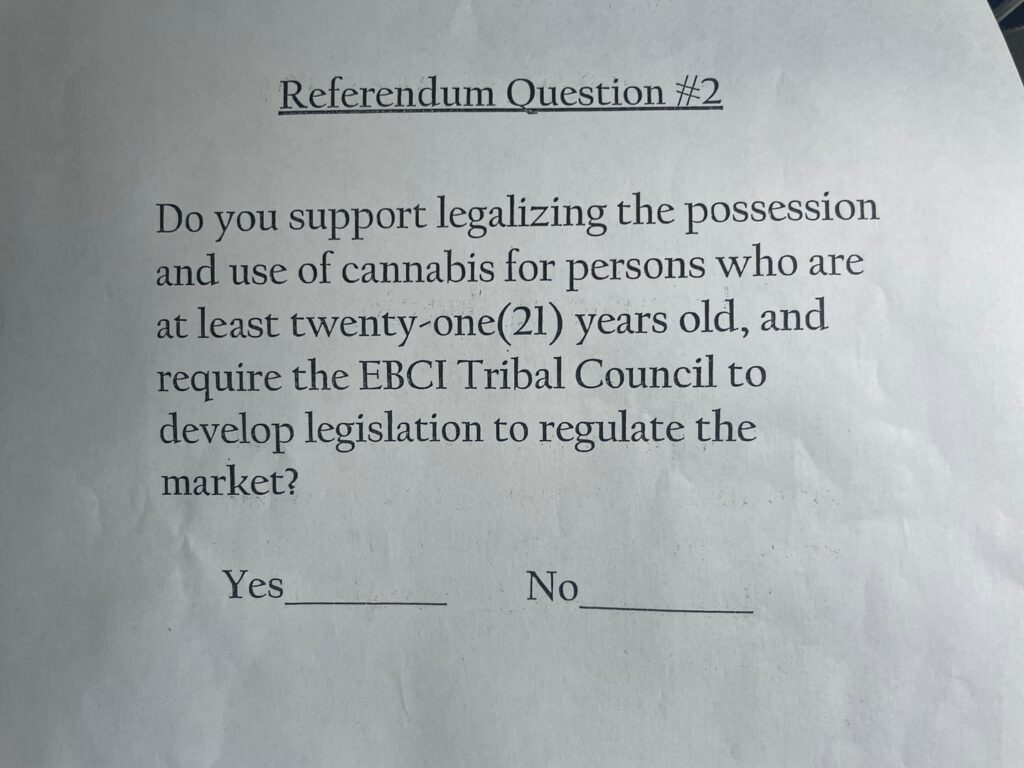CHEROKEE, N.C. — A historic vote will take place Thursday that could legalize the possession and use of marijuana in part of western North Carolina.
The Eastern Band of Cherokee Indians just west of Waynesville will go to the polls to vote this week.
Already, there’s been a high turnout among early voters. Officials are expecting more of the same Thursday when voters head to the polls.
If it passes, the tribe’s 57,000 acres in the western part of the state would become the only place in North Carolina to legally buy marijuana.
Channel 9′s Dave Faherty spotted signs in Cherokee Tuesday that support the referendum, which would legalize the possession of marijuana on tribal lands.
Lamar Standingdeer and his cousin plan on voting, and like many who are part of the Eastern Band of Cherokee Indians who Faherty spoke with Tuesday, their minds are made up.
“I don’t see anything wrong with it,” he said. “If it wasn’t for that, I’d be in the hospital now.”
“All the politicians — we talked with them today, nobody said anything bad about it,” Debra Chiltoskie said.
Already, the tribe is converting an old bingo parlor into what’s being called the world’s largest medical cannabis dispensary superstore. A manager told Faherty that they’ve grown 6 tons of marijuana and are developing as many as 350 products.
But U.S. Congressman Chuck Edwards has introduced the “Stop the Pot” act to withhold federal funding from states and tribes that permit the use of recreational marijuana.
“The laws of any government should not infringe on the overall laws of our nation, and federal funds should not be awarded to jurisdictions that willfully ignore federal law,” Edwards said.
But for Janice Wilnoty and her son, they believe legalizing marijuana could help a lot of people.
“I could benefit because I have anxiety, epilepsy and pain management,” she said. “So I think there’s a lot of us that could benefit from that.”
Right now, there’s no timetable and how soon after the vote marijuana could be sold there. Part of the referendum says it will be up to the tribal council to regulate the market.
H/T: www.wsoctv.com



